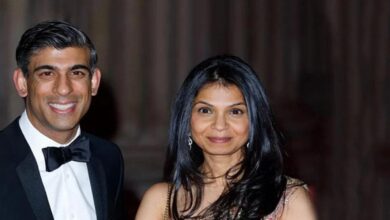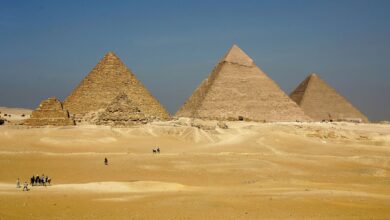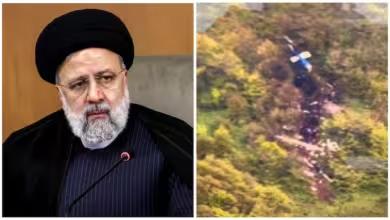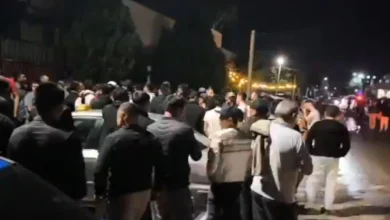Saudi forces authorized ‘to kill’ to clear land for futuristic eco-city
A villager was shot and died, according to Colonel Rabih Alenezi, after he refused to be forcefully relocated from his home to make room for The Line, a linear smart metropolis that is now being built
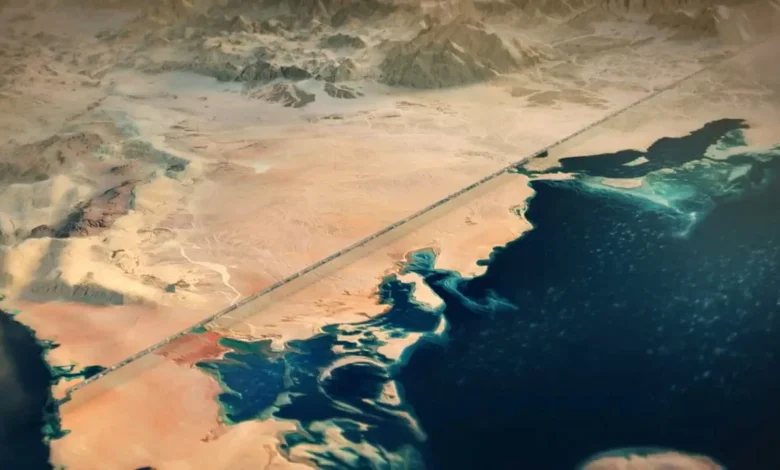
A former Saudi Arabian intelligence officer claims that the Saudi authorities have permitted the use of lethal force against individuals refusing eviction to make way for the construction of a futuristic eco-city linked to NEOM-linked futuristic desert eco-city being built by dozens of Western companies.
According to Col. Rabih Alenezi, he was given the order to drive out residents of a tribe in the Gulf state so that The Line, a component of the Neom eco-project, could be built. A villager was shot dead, according to Colonel Rabih Alenezi, after he refused to be forcefully relocated from his home to make room for The Line, a linear smart metropolis that is now being built, the BBC was informed.
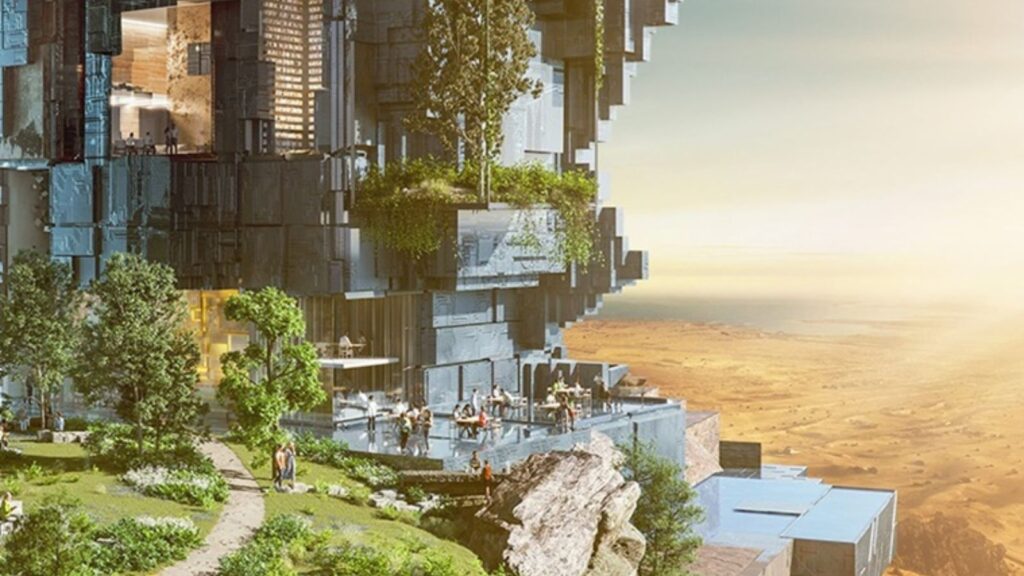
Colonel Alleges Lethal Force Authorized for Construction of Futuristic Eco-City
“Whoever continues to resist [eviction] should be killed, so it licensed the use of lethal force against whoever stayed in their home,” Alenezi told the BBC.
Colonel Rabih Alenezi was taken into protection by the United Kingdom last year. Al-Khuraybah, which is 4.5 km south of The Line and is home to the al-Howeitat tribe, who had lived in the area for a long time, was the village where inhabitants were told to leave, according to the Colonel.
The Huwaitat tribe, who make up the majority of the population, has been subject to widespread arrests and crackdowns for defying eviction orders. Several villages have already been demolished to advance the Neom project, a mainly Western-funded initiative for environmentally friendly urban growth.
“[Neom] is the centerpiece of Mohamed Bin Salman’s ideas,” Alenezi reportedly told the BBC. “That’s why he was so brutal in dealing with the Huwaitat.” The BBC has examined satellite photos of al-Khuraybah, Sharma, and Gayal, three of the destroyed settlements. Hospitals, schools, and homes have vanished from the map.
Four years ago, security personnel allegedly shot and murdered Abdul-Rahim al-Howeiti for refusing to give up his land, which was scheduled to be demolished to make room for the NEOM project’s construction. Col Alenezi said the April 2020 order stated the Huwaitat was made up of “many rebels” and “whoever continues to resist [eviction] should be killed, so it licensed the use of lethal force against whoever stayed in their home”.
Al-Howeiti charged that Saudi Arabia was purposefully uprooting people to support a project that was “alien” to the customs and history of the area. While confirming his death, Saudi security officials stated that they had to “retaliate” because the tribesman had opened fire first. His passing sparked outrage throughout the globe.
Col. Alenezi’s remarks on the use of deadly force could not be independently corroborated by the BBC. However, we were informed by a source acquainted with the operations of the Saudi intelligence directorate that the colonel’s evidence – about the manner and content of the clearance order – was consistent with their broader knowledge of such missions. They said that it would have been acceptable for the colonel to lead the assignment given his seniority.
The UN and the UK-based human rights organization ALQST claim that after villagers resisted removal, at least 47 more were taken into custody; many of them faced terror-related accusations. According to ALQST, 40 of them are still being held, and five of them are on death row. As per the organization, several people were detained for merely expressing their public grief over al-Huwaiti’s passing on social media.
According to Saudi officials, compensation has been extended to people who were forced to relocate for The Line. However, ALQst claims that the amounts paid out have been much less than the sum guaranteed. The displaced villagers were very reluctant to communicate with international media for fear that it would put their jailed relatives in even more jeopardy.
However, we had conversations with those removed for a different Saudi Vision 2030 project overseas. To make way for the construction of the Jeddah Central project, which will contain an opera theatre, a sports complex, and upscale retail and residential buildings, more than a million people have been forced to relocate.
Growing up in Aziziyah, one of the roughly 63 neighborhoods impacted by the demolitions, was Nader Hijazi [not his actual name]. Less than a month’s notice was given to him before the demolition of his father’s house in 2021. Hijazi said the pictures he had seen of his old area reminded him of a battle zone and were horrifying. “They’re waging a war on people, a war on our identities.”
Before the news was taken up by Western media outlets, The New Arab was one of the first English-language media sites to report about Howeiti’s killing at the hands of Saudi security agents in April 2020.
A former top official of Neom’s ski project told the BBC that only a few weeks before departing his home US for the position in 2020, he had learned of Abdul Rahim al-Huwaiti’s death. Andy Wirth claims he questioned his bosses about the evictions on several occasions, but he was not happy with their responses.
“It just reeked of something terrible [that] had been exacted upon these people… You don’t step on their throats with your boot heels so you can advance,” he said.
Disappointed with the project’s administration, he quit less than a year after joining it. Critical also is the CEO of a British desalination business that abandoned a $100 million (£80 million) proposal for The Line in 2022.
“It might be good for some high-tech people living in that area, but what about the rest?” said Malcolm Aw, the CEO of Solar Water PLC. He continued by saying that because of their intimate knowledge of the area, the locals should be seen as invaluable assets. “You should seek that advice to improve, to create, recreate, without removing them.”
A study by ALQST involved 35 displaced residents of the Jeddah area. Of those, over half said they had been ejected from their houses under fear of arrest, and none claim to have received enough warning or compensation in line with local legislation.
Attacks against Saudi government opponents who reside outside are not new; the most well-known example was the 2018 murder of American writer Jamal Khashoggi by Saudi operatives in the Saudi consulate in Istanbul. According to a devastating US intelligence report, Mohamed Bin Salman gave his approval for the operation. The crown prince refuted having a part.
Col. Alenezi, however, is not sorry he defied orders concerning Saudi Arabia’s future metropolis. “Mohamed Bin Salman will let nothing stand in the way of the building of Neom…I started to become more worried about what I might be asked to do to my people,” he added.
Both the Neom management and the Saudi government declined to comment. The $500 billion (£399 billion) Neom eco-region in Saudi Arabia is a component of the kingdom’s Saudi Vision 2030 plan, which intends to diversify the economy away from oil.
The Line, the company’s main project, is barely 200 meters (656 feet) wide and 170 kilometers (106 miles) long. barely 2.4 kilometers of the project are supposedly anticipated to be finished by 2030. The Line is billed as a car-free metropolis. The building of Neom involves dozens of international enterprises, including some British ones. The ambitious project, however, has been subject to criticism, mostly over human rights violations and environmental concerns, and has been labeled as “dystopian”.
Crown Prince Mohamed bin Salman of Saudi Arabia has called the site of Neom’s construction the ideal “blank canvas”. However, his administration claims that more than 6,000 individuals have been relocated for the project from Tabruk; ALQST believes that number to be greater.
He has focused his attention and vast resources on the project, with hopes its completion will mark a new era in the modernization of his father’s kingdom. Riyadh continued, saying that the men were “terrorists” with ties to Al-Qaeda and the Islamic State rather than being faced with the death penalty for defying eviction.
The US outlet also stated that Riyadh has lowered its expectations for the future metropolis, estimating that just 300,000 people will call it home by 2030 as opposed to the 1.5 million that had been projected.
You might also be interested in – Saudi Arabia’s first male robot harasses reporter on live TV
